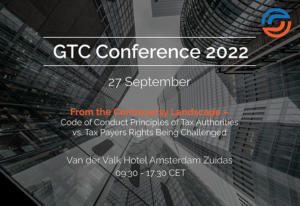BY: Mark Korten – Korten Consulting
The Minister of Finance in Mauritius presented the 2020/21 Budget on 11 June 2021. I have waited to see if the Finance Bill that enacts the Budget proposals would be out by now as there is a past precedent in Mauritius of omitting important Budget proposals in the enacting legislation. It seems that we are at least a month away from seeing the new laws so I am now sharing with you some highlights insofar as they affect non-Mauritian citizens that are considering making Mauritius their residence or a jurisdiction from which to hold wealth or establish and operate a business of substance. The Budget was fairly progressive and sensible, although not being as bold and inviting as many of us would have liked. Given the economic devastation created by the COVID pandemic, fears of further tax increases were thankfully not proposed. The central themes and objectives in this Budget were boosting investment, restoring confidence in Mauritius and creating a new economic architecture. If the Budget proposals are implemented effectively, I believe that to a certain extent these objectives should bear fruit.
There are some concessionary tax incentives proposed as well as further immigration incentives for foreigners which I will highlight briefly.
Changes to Mauritian Immigration Rules
- The introduction of a new 10 year Family Occupation Permit for an applicant that contributed USD 250 000 to the COVID-19 Project Development Fund
- Certain of the frustrating administrative rules and restrictions that applied to Occupation Permits (OPs) have been removed, such as there being no longer a requirement for an OP holder to enter Mauritius on a business visa, the entitlement to apply for an OP irrespective of visa category when entering Mauritius, the introduction of an OP smart card, and the flexibility of the professional (read employee) OP holder to switch jobs without needing to file a new OP application
- A Privilege Club Scheme is to be introduced providing incentives such as privileged access to hotels and golf courses for OP holders and retirees
- The validity of a professional (employee) OP will be extended from 3 to 10 years (presumably with new applications being for 10 years). This should greatly assist foreigners in obtaining emigration tax clearance from their pervious country’s Revenue Authority demonstrating that they have residency of sufficient permanence in another country
- Previously, foreigners that obtained permanent residence by acquiring a qualifying Mauritian property at a price of not less than USD 375 000 would not entitle his/her dependents to work in Mauritius. It is proposed that henceforth the spouse and possibly all dependents may live and work in Mauritius without requiring his/her own applicable permit
- The 24 year maximum age applicable for the dependents of an OP or other Work permit holder to live in Mauritius has been removed. Also, the spouse of any OP or any Work Permit holder may invest and work in Mauritius without requiring an OP
- OP applicants and holders on a self-employed basis are now to be permitted to set up a one person company through which to consult, trade or otherwise practice her profession, and to employ administrative staff. Given the personal tax landscape in Mauritius, this may provide for material tax efficiencies. In addition, the Budget proposes changes to the Medical Council Act and the Dental Council Act to facilitate the ability for foreign doctors, dentists, related specialists and health care professionals to register and operate a private practice (including it seems through a company) for their own account in Mauritius.
Income Tax Proposals
- The 80% partial exemption (an effective 3% tax rate) is to be extended to companies with a investment dealer license and companies that conduct rail or locomotive leasing activities
- A 3% corporate tax rate (instead of the standard 15%) is to apply to private universities set up in Mauritius and to companies engaged in medical, biotechnology and pharmaceutical activities
- New companies registered with the Economic Development Board (EDB) as a holder of an Investment Certificate are eligible for an 8 year tax holiday for activities in various defined sectors that include aquaculture, agricultural processing, food processing, healthcare, biotechnology and life sciences, nursing and residential care, digital technology and innovation, tertiary education and certain other activities, or as approved by the EDB
- Foundations and trusts resident in Mauritius that enjoy tax benefits (that would apply if the settlor and all beneficiaries are not Mauritian tax resident) must now comply with prescribed economic substance requirements. This will mean that Mauritian trustees will be under more scrutiny to take ownership of all decisions relating to trust assets and not simply outsource trust asset investment decisions to service providers resident outside of Mauritius
- The 5 years tax holiday previously applicable to Family Offices and individuals issued with an Asset Manager of Fund Manager Certificate has been extended by 5 years with new applications being for a 10 years period. In addition, the minimum assets under management by a person with such a Certificate has been reduced from USD 100 million to USD 50 million
- Clarity has been given regarding the taxation of non-citizens of Mauritius who stay in Mauritius for more than 183 days in the tax year (making them tax resident) arising from holding a Premium Visa (allowing them to live in Mauritius for 12 months working remotely from Mauritius). Mauritian sourced income arising from working remotely from Mauritius will only be taxed to the extent that such income is remitted to Mauritius. In addition, money spent in Mauritius through the use of foreign credit or debit cards will not be deemed to have been remitted to Mauritius. Note that these are two special concessions as normal Mauritian tax rules would generally give rise to Mauritian taxation on the basis that the source of such income arose from services rendered in Mauritius (potentially at quite a high rate if exceeding Rs 3 million in the tax year, being 15% income tax plus an Individual Solidarity Levy ranging from 25% to 10%). If income is remitted to a Mauritian bank account, such income will be liable to Mauritian personal income tax unless a declaration is made by the holder of the Premium Visa that the applicable tax has been paid on such remitted income in the source country or her main country of tax residence.
Of course, there are various other tax proposals in the Budget, most of which would not be of interest to expatriates and foreigners. The devil is always in the detail with tax laws, so will see what the Finance Bill looks like in due course. You are welcome to contact me if you have any questions or need direction on Mauritian tax and legal issues. Stay safe and healthy during these challenging times!






